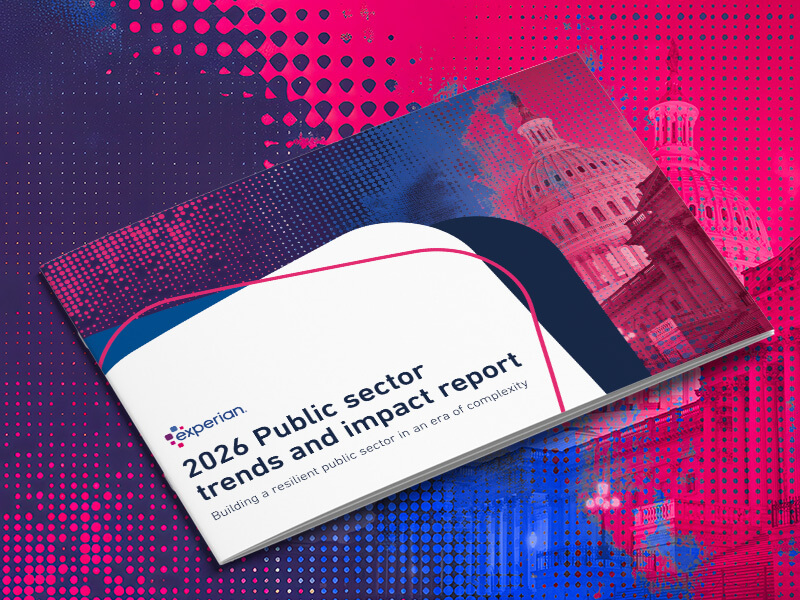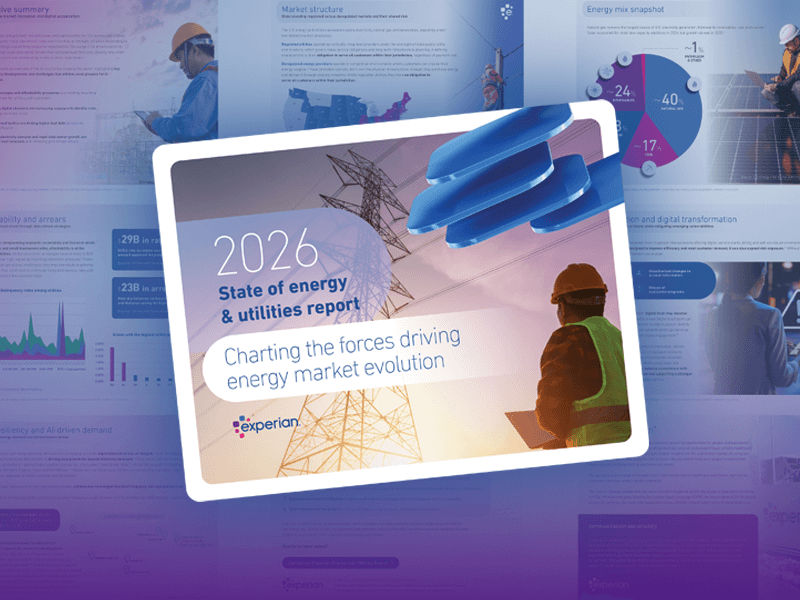Report
Published August 23, 2022
Commercial Economic & Market InsightsAfter a strong economic rebound in the wake of COVID-19, a more challenging environment and heightened recession worries are forcing small businesses to "hit the reset button". Small business anxiety about elevated inflation and labor shortages persisted in Q2 2022, as small businesses held debt balances longer, while seeking additional credit in anticipation of a tighter lending environment.
Complete the form to access the report
This site is protected by reCAPTCHA and the Google Privacy Policy and Terms of Service apply.
Thank you for your interest
Your free Experian resource is now available. Enjoy!
 Report
Report
2026 Public Sector Trends and Impact Report
Read our first-annual 2026 Public Sector Trends & Impact Report to understand the forces reshaping agency operations and trust:
- Rising fraud and program integrity risks
- Modernization challenges across legacy and digital systems
- Workforce strain and responsible automation
- Securing citizen access without increasing friction
 Report
Report
2026 State of Energy and Utilities Report
Read our first-ever State of Energy and Utilities Report examining the forces shaping the industry this year.
- Rising arrearages and affordability pressures
- Expanding digital channels and identity-related fraud exposure
- AI-driven demand, data center growth and grid resiliency challenges
- Data-driven strategies to reduce risk and strengthen customer trust
 Report
Report
3 Key Trends to Watch in 2026
After outperforming expectations in 2025, the U.S. economy heads into 2026 with momentum - and meaningful risks. This Macro Moment explores the forces shaping the year ahead, from AI-driven growth and consumer resilience to evolving credit conditions and labor market uncertainty, helping leaders prepare for what’s next. Key takeaways include:
- The economic signals that mattered most in 2025 - and why they still matter
- How AI, consumers, and credit conditions are shaping 2026
- Where risks remain and what to watch in the labor market
 Report
Report
2026 State of Credit Cards
As the credit card landscape evolves, understanding how consumers and businesses are adapting has never been more important.
Our second annual State of Credit Cards Report provides a timely update on key market dynamics and dives into an often-overlooked segment within credit card portfolios: business accounts.
Key takeaways:
- 30+ DPD delinquency rates remained above pre-pandemic levels in 2025.
- Fintechs continue to gain share in the credit card market, posting a 71% YoY increase in account originations.
- Many businesses use consumer credit cards to support business-related activity, making this segment easy for lenders to overlook.